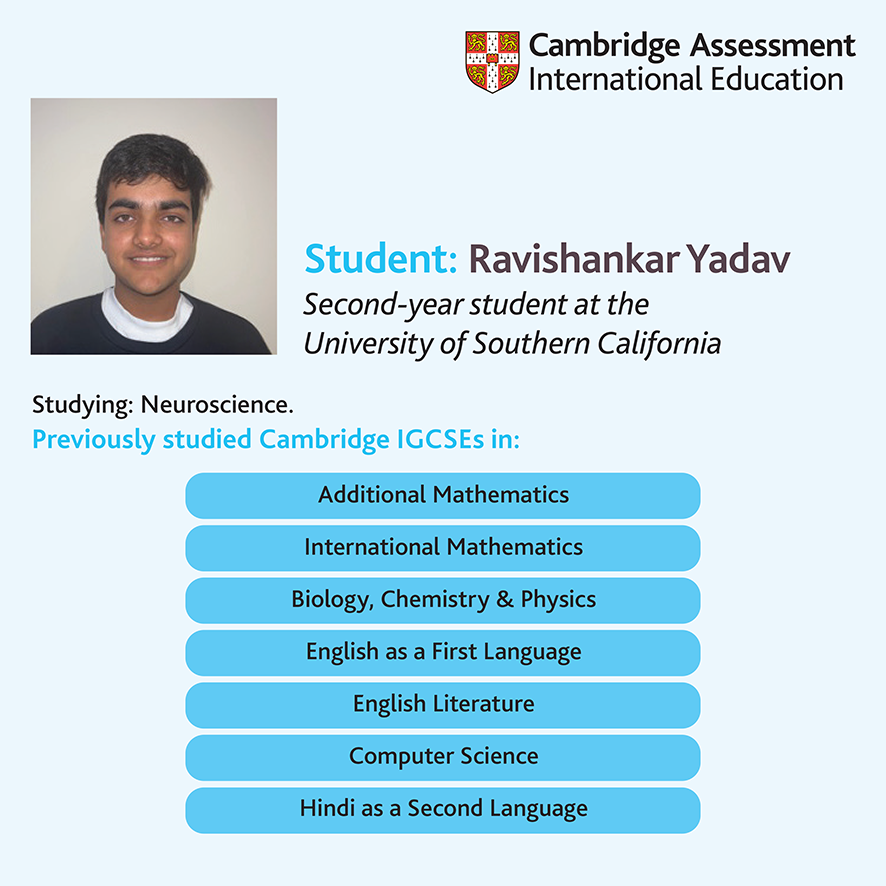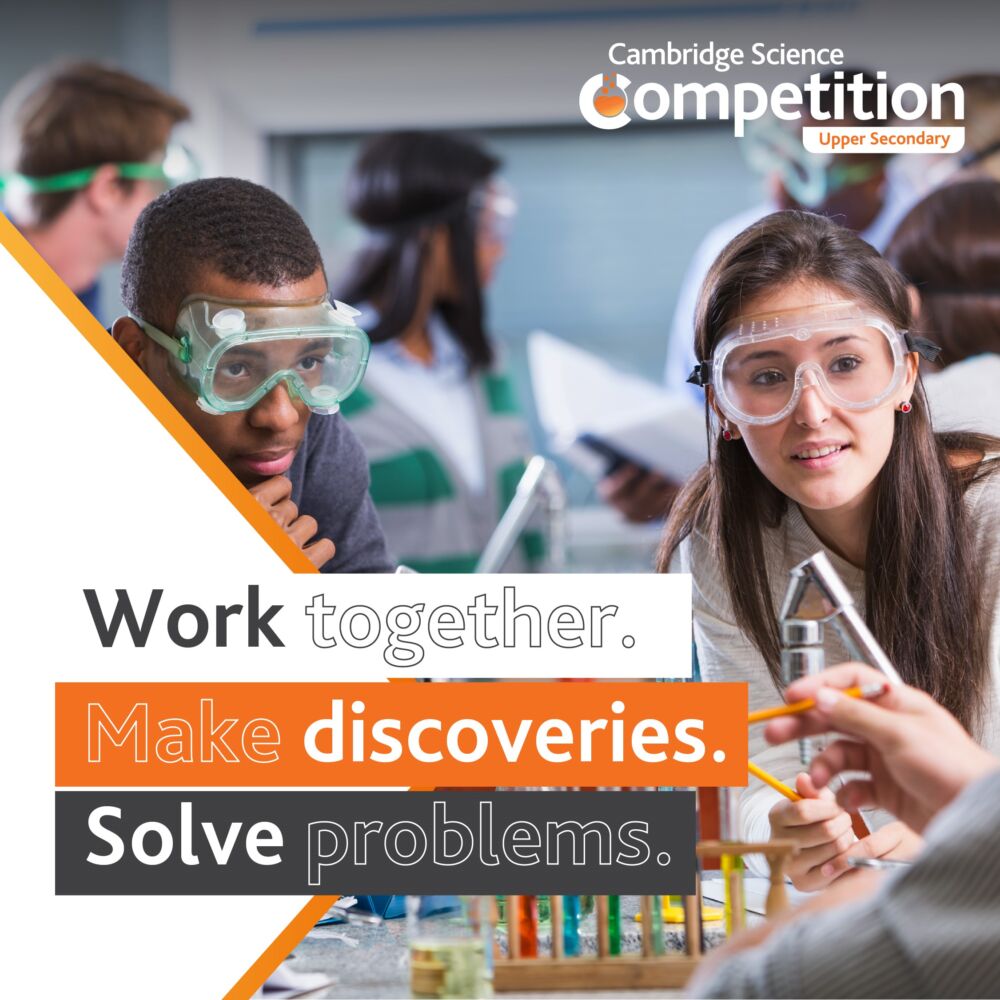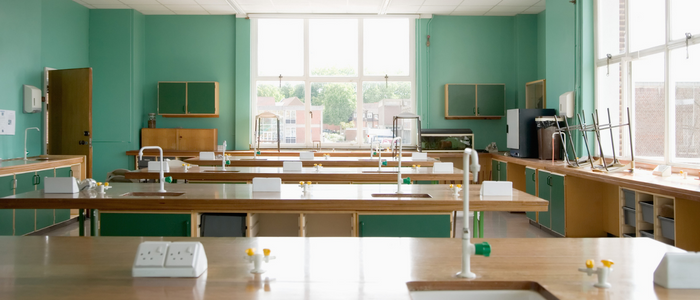Almost 260 schools from around the world took part in the first ever Cambridge Upper Secondary Science Competition before the pandemic. As the competition gets underway again in 2023, one student from the 2019 Best in World winning team, from Jayshree Periwal International School, India, talks to us about his experience.

Tell us about your experience of the Cambridge Upper Secondary Science Competition and how you carried out the food-colouring experiment.
The competition appealed to myself and three other classmates – Divya, Chetan and Suvira.
As part of the Cambridge curriculum, we used biology labs and worked together enough to know what each other’s strengths were. Divya always had a knack for precision during experimentation, so I knew we had to get her for the practical side of the portfolio. Chetan and Suvira are master crafters who tailored the writing part with scientific data and collaborated to make the portfolio academically sound.
My strengths lie in quantitative analysis. We all needed each other and relied on each other’s strengths.
We read journal articles and figured out the primary sources that set the basis for our hypothesis. From there, we had a detailed procedural planning, including what apparatus to select, how to control variables like room temperature, and what dyes to test. We followed the competition guidelines and documented our experiment in a portfolio.
The experiment itself took 20 hours. It took another 6 hours for us to write the lab report. We were studying for our Cambridge IGCSEs at the same time, so we had to make time for the project. We would work on it either between breaks or after school hours.
What did you learn from this project?
I enjoyed the project, although planning the experiment was a strenuous mental exercise. We had to explore the topics according to the scientific method, meaning there were variables to confine our experiment to – like choosing what organism would be a good model for representing the effects of food dye on respiration.
The project findings showed us that synthetic food dyes do affect the rate of respiration in baker’s yeast. The project was also the first academic writing we had attempted in high school, so it truly allowed us to understand the scientific method.
I learned to analyse data better through graphs, quantify the significance of the data and organise data structurally. I learned what working in a team meant, and the role that leadership plays inside the lab.
Did the competition influence your decision about what to study at university?
I always had a passion for brain architecture, thus, my neuroscience major. However, the competition made me realise my interest in lab research work, which motivated me to choose more hands-on coursework at university.
I absolutely love my university course. I am taught by professors so enriched in the literature of their topic that they are constant motivators for me to keep learning and exploring.
What advice do you have for students entering the 2023 competition?
Work with your classmates and give it your best. There is more merit in participating than winning – the ability to ask questions and go into a lab to answer them yourself is remarkable.
I would encourage students to participate in all science competitions as it will help them showcase their interest in science when they apply to university.

The Cambridge Upper Secondary Science Competition is now open for 2023!
The extra-curricular activity is for teams of aspiring scientists studying Cambridge IGCSE or O Level Science.
Find out how to enter and take part in scientific investigations.


